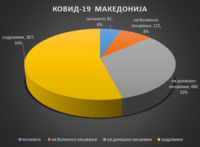Perhaps the most surprising finding of the study was that expression of the gene for ACE2 also correlated with the activation of genes that turn on interferon production.
Interferon is a protein produced by the body to fight off viral infections by disrupting viral replication and activating immune cells. For this reason, interferon therapy is widely used to treat hepatitis B and hepatitis C.
But in the context of a COVID-19 infection, the role of interferon is unclear.
On one hand, the virus targets interferon-stimulating genes as a way to infect cells. On the other hand, the interferon production should also block the viral production of SARS-CoV-2.
It is possible that the virus has found a sweet spot, essentially hijacking the body’s defenses against viral infections for its own purposes.
“It’s hard to make any broad conclusions about the role of interferon against this virus. The only way we’ll begin to understand that is through carefully controlled clinical trials,” Shalek says. “What we are trying to do is put information out there, because there are so many rapid clinical responses that people are making. We’re trying to make them aware of things that might be relevant.”
The findings appeared in the journal
Cell.









